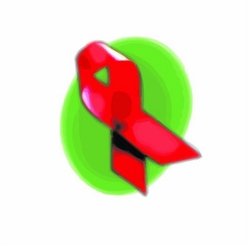So, you are HIV-positive!
Published: Sunday | December 6, 2009

Heather Little-White, Ph.D., Contributor
If you have been having unprotected sex, you may be wondering if you have contracted HIV, the virus that causes AIDS. Your sexual history may be one in which you had unprotected sex with one or more partners who had HIV, putting your current partner and yourself in doubt.
HIV is only spread through certain bodily fluids such as blood, semen, vaginal fluid and breast milk. Unprotected sex, though the most common method of transmitting the virus, is not the only way you could have contracted HIV.
Other modes of transmission include:
You can rule out the idea that you got HIV from just working with or being in the company of someone with HIV, being bitten by an insect, sitting on toilet seats or sharing a meal.
Change lifestyle
So you may be brave enough to do the HIV test only to find that you are HIV-positive. Your heart sinks and you fear telling your partner that you are HIV-positive. It means also that your sexual practices will have to change immediately to protected sex. However, the discovery that you are HIV-positive does not mean that your life is on hold.
Having HIV is not having AIDS. HIV means human immunodeficiency virus which causes the disease AIDS. Being HIV-positive does not mean that you will get AIDS. You could live out your life before it develops into AIDS.
What happens when HIV enters the body? It infects specific cells, called CD4 cell, helper cells, in the immune system. These cells are important to the immune system, critical in helping the body fight infections and diseases. When the CD4 cells are attacked by a virus like HIV, you will start feeling sick, getting colds, flu and other infections very regularly.
Stages of development
Even when you are HIV-infected, there are many stages you may go through before it develops into AIDS. The period to move from infection to disease varies with everyone. Influences include genetics since antiretroviral therapy and new medical treatments are not a cure for AIDS itself.
Infection: In the early stage after infection, HIV infect cells and copy itself before the immune system starts to respond. During this stage, you may experience flu-like symptoms.
Response: You may not feel it, but the body responds to the virus by fighting it making antibodies in the process.
Asymptomatic phase: You may not experience any symptoms even though HIV is causing damage to your body.
Symptomatic phase: During this phase, you develop certain symptoms such as pneumonia.
AIDS: This is diagnosed when you have a range of symptoms and infections and specific test results confirming that you have the disease. Persons who are older, infected with more than one type of HIV, poorly fed and under severe stress, will take a shorter time to develop AIDS. You may take a little longer if you stick closely to your doctor's orders, eat healthy foods and take care of your well-being.
Medical advice
You can control the progression of HIV infection to AIDS which you do not have to get. You will have to find a doctor and stick closely to the medical regime that will be set up. There are some things you will have to work through with your doctor.
Practise safe sex
There will be changes you have to make to your personal life.
Most importantly, you will have to engage in protected sex, using a condom every time to reduce the risk of getting another sexually transmitted disease including another strain of HIV.
If you take drugs or smoke, you will have to stop these practices.
Eat healthy meals, diet is critical to boosting your immune system, keeping you strong, providing energy and preventing weight loss.
Engage in regular exercise.
Get adequate amounts of sleep and rest.
Take time to relax, engage in meditation and quiet time.
Treatment
Antiretroviral medicines: HIV is a retrovirus and the grogs used are anti (against) retroviral to control the virus and slow the progression to AIDS. Antiretroviral drugs do not cure HIV.
HAART: This a combination of three or more medicines in a regime called highly active antiretroviral therapy (HAART) tailored to each patient. The side-effects of this regime should be discussed with your doctor once they occur and regardless how minor.
Other medicines: This prescription will depend on the CD4 count.
Treating other infections: This is important if the CD4 count falls below 200 and puts you at risk of other infections, called opportunistic infections. Examples are pneumocystis carinii pneumonia, cytomegalovirus, tuberculosis, hepatitis C and human papilloma virus.
Opportunistic infections
Early indications that you may be suffering from an opportunistic infection including breathing problems, weight loss, persistent fever, mouth problems such as thrush, sores, dryness, loose teeth, trouble swallowing; change in vision, diarrhea and skin rashes or itching. You should advise your doctor as soon as these symptoms appear.
Protect others
You have a responsibility to protect other people from contracting HIV from you. It means that you should:
To live with HIV is to act responsibly, practising safe sex and taking all the necessary prescriptions for healthy mind and body.
